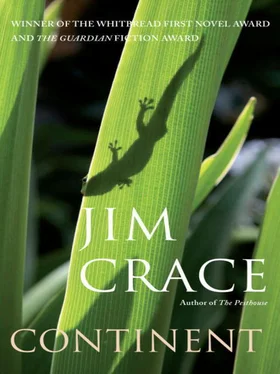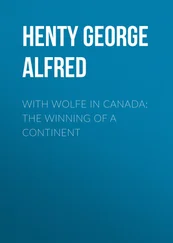I tired quickly of dissembling. I opened an eye — quite an effort for an old man long past winking — and focused first on my gecko, then my toes with their fossilized toenails and finally the Minister. Our smiles were hollow.
‘No, no, please don’t get up,’ he said. ‘We can talk here.’ He watched my white lizard, now shuffling squat-legged down my stomach towards the dark safety of the bed sheet which draped my legs and loins.
‘You live modestly for such a wealthy man,’ he said at last.
‘Wealthy?’
‘A millionaire by now, I should say.’
I said nothing. The Minister was talking monkey-shine.
‘You have been selling your work abroad at great profit.’ He took from the inner pocket of his handmade suit a thick wad of paper and tossed it onto the bed.
‘Evidence,’ he said. ‘There is an article about you in the New York Times by a man who spent many thousands of dollars on your shop signs and pillow-prayers. There is a list there of over a hundred foreigners who have paid great sums for your works in the market and have taken them out of the country.’
‘I have sold nothing for nearly ten years,’ I said. ‘I live on my savings. If any of my works are for sale then they are being offered by their owners, the people I worked for many years ago. Not me. Not guilty. I’m too old and lazy to be interested in trade.’
The Minister was convinced. Nothing about me or my house suggested wealth or dishonesty.
‘Well,’ he said. ‘It has to stop. It is illegal. The country’s resources are being illegally exported under our noses. We are being exploited. You too are being exploited. Collectors in New York are growing rich while your own people are scratching for termites. So … it has to stop.’
I shrugged. I had nothing to say. Export control was his affair.
‘Tell your friends in the marketplace,’ he said, ‘that the next one caught selling your work to a foreigner will be in contravention of our trade and export laws. We’ll have to find a place for them in the penal village. Anyone who has works of art to sell must sell them to the government. It is a matter of principle.’
He stood up sharply and towered above me as I reclined beneath the sheet and lizard. ‘A travelling exhibition is to be arranged of your work. And an auction sale is to take place…’
He sat at the end of my bed and mentioned Paris and Vienna and Toronto and Sydney and, of course, Chicago. He looked pleased on my behalf. ‘Naturally, this is a partnership,’ he explained. ‘You gain, we gain. We gain foreign currency from the sale of your work. Your government will have some … discreet money. We will pay it into a safe bank account. In Europe. In Switzerland. That’s by far the best. So, you see, if there is an emergency — some medicines are required, for example — then we have the money to buy them. Everybody gains. For you, there is security in your old age. A government house.’ I shook my head. ‘A car, then, whenever you need it, with a driver. Good food. Comfortable clothes. Fame. We will provide it all.’
‘I like good food,’ I said. ‘I like comfortable clothes. A driver and a car would be most useful. Don’t imagine that I am ungrateful or unpatriotic. But there is nothing to exhibit. All my work has gone. It has either been burned with the dead or eaten by parchment lice or shipped off to America by export racketeers. There are a few ornamental gate-plates outside embassies and that is all.’
‘What we want,’ insisted the Minister, with the single-mindedness of a deaf man, ‘are canvases decorated in Siddilic script. Ornamental pieces, works of art, not shop signs and the like.’
‘But there are none.’
‘Make some. You are a craftsman. It should be simple.’
‘If it were that simple,’ I said, ‘then you would not need to come to me. You could buy what you wanted at every booth in the market. It would be like shopping for potatoes.’
‘Well, make an effort then. Meet the grand challenge.’
‘I’ve outgrown challenges.’
‘Try,’ said the Minister’s head of protocol.
ON FRIDAY I visited my uncles’ village in some comfort. I now have a ministerial car at my disposal. And a driver. We swept across the scrub at the end of the Italian road and bumped on the saloon’s hydraulic suspension over the last few kilometres to the village. Never before had I been so cool. It is cold at night, of course, in the house. But here in the car I was cool and dry in sunlight. Outside, the sun blistered the paintwork. Goats were too parched to lift their bodies and scurry away.
‘Air-conditioning,’ said the driver. He peeked in his mirror to enjoy my response. I nodded. I looked impressed.
‘Electric windows,’ he added. The windows on either side of me hummed down like melting sheets of ice and the daytime heat curled into the car.
‘Stereo cassette,’ he said and pushed more buttons. A woman sang to me in English. ‘Electric windscreen wipers.’ A soapy spurt of liquid ejaculated from under the car bonnet onto the windscreen, turned the dust there into mud, and was whisked away by the silent twin-armed wipers. I am an old man and my problems are multiplying. I had never been so hot and cold, so cosseted and so bothered.
‘Reclining seats,’ said the driver, ‘for siesta.’ The leather cushions beneath me began to hum and tip. My legs were lifting, my back was falling, all at government expense.
THE PEOPLE at my uncles’ village were not impressed. All they wanted was tobacco. The driver handed out a packet of cigarettes. But nobody wanted a light from the car’s automatic cigar-lighter. Nobody wanted to smoke. They wanted to hoard their fortune. The driver gave out ice cubes from the icebox in the car. Children held them and watched them slowly disappear, like fool’s gold. Nobody remembered my uncles, though our family name was familiar. They pointed me towards the trees. They were superstitious enough to respect the acacia of old men. They waited patiently for the firewood.
I COME once a year — once a year only — to pay my respects at the acacia in the village of my uncles. I come after my birthday and tie a twist of white linen to a branch, a strip of cloth every year.
The tree was now a ragamuffin of flapping tatters, from white to grey to nearly black. There was more linen than leaf. In the old days I came by donkey and then later by bus and now by air-conditioned limousine. In the distance, beyond the walls of the acacia wood, I could hear the stereo cassette of my driver and the shrieks of the children. A touch of reality amongst the reveries.
I took the fresh, newly laundered strip of linen from my pouch and carefully wound it twice round the one living branch. I tied it with a firm knot and stepped back with the delicate care of an egret. Slowly — and not without some pain — I urinated into the earth at the roots of my tree. I had carried out both the written and the private rituals. Then I sat and prayed. I prayed — even at this late dry stage in my rigidly geometric life — for Lily Death.
This is what we were taught as children, that when God created Death he created two sorts, Lily Death and Moon Death. The choice is ours, depending on the way we live our lives. The lily is gregarious. It thrives amongst its own kind. It sends out shoots which replace and survive it after death. The moon is solitary and childless. It has no offshoots. But when it dies, it rises to live again. I had lived a moon life. Was I to die and rise again? Was the reward of solitude on earth immortality of some kind?
These days, of course, the choice is not the same. They have cleared the lilies from the river. The moonshine is damped out by street lights and car lamps. Nowadays, one selects either cremation or interment. It’s ashes or bones. We choose the nature of our death by the way we live our lives. Accusations are made against cigarettes and alcohol, animal fats and partners in bed.
Читать дальше












